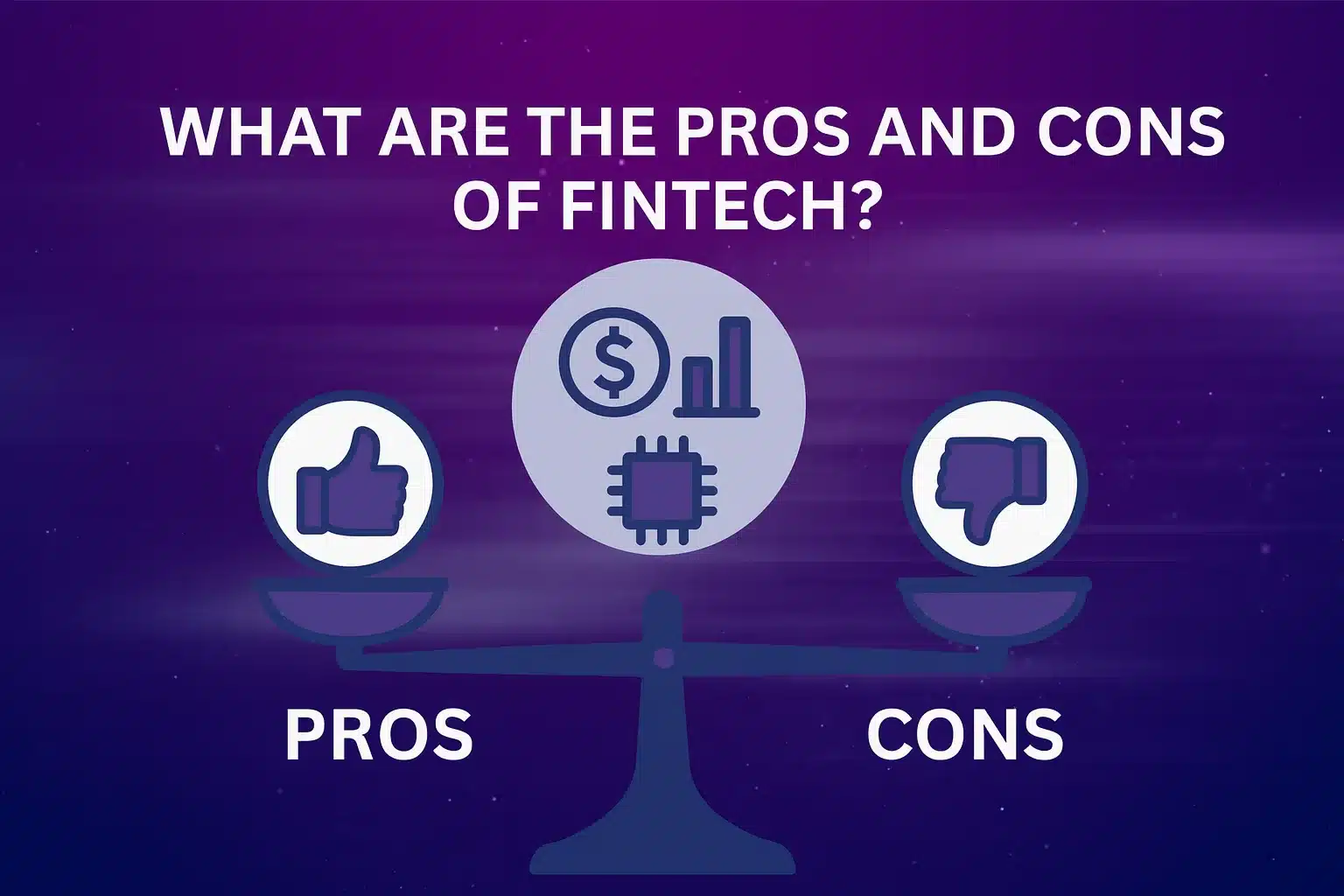Fintech has become a dominant force in modern finance. From mobile payments and digital banks to robo-advisors and blockchain, these innovations have changed how people manage money. But what are the pros and cons of fintech? This question matters for consumers, investors, and businesses alike.
Pro: Greater Access and Inclusion

One major benefit of fintech is how it expands access to financial services. Traditional banking systems often exclude people due to geography, income, or credit history. Fintech apps can reach users through a smartphone and offer simplified onboarding, often with no need for in-person visits or paperwork.
So, what are the pros and cons of fintech in terms of access? The upside is clear: underserved populations, such as those in rural areas or emerging markets, gain tools for saving, borrowing, and investing. Peer-to-peer lending, microloans, and neobanks are helping bridge long-standing gaps in financial inclusion. This democratisation of finance allows millions to participate more fully in the economy.
Con: Data Privacy and Security Risks

With digital access comes increased risk. Fintech platforms collect and process sensitive financial data. For instance account balances, income details, and personal identifiers. These are prime targets for hackers. Unlike legacy banks, many fintech startups operate with limited cybersecurity budgets or less mature risk practices.
What are the pros and cons of fintech when it comes to data security? The downside is the growing frequency of breaches, phishing attacks, and API vulnerabilities. Users may not know where their data is stored, how it is shared, or who is ultimately responsible if things go wrong. While regulation is improving, especially in Europe with GDPR, companies must go beyond compliance and actively invest in protecting user information.
Pro: Convenience and Efficiency

Fintech solutions are designed for speed and usability. Tasks that once required a bank visit can now be completed in minutes on a mobile device. For instance opening an account, applying for a loan, or sending money. Automation, smart interfaces, and 24/7 service make financial management easier for users.
This efficiency is a major reason why the pros and cons of fintech continues to be a central debate. On the pro side, users save time and avoid bureaucracy. Businesses also benefit by reducing operational costs and reaching customers through scalable platforms. Instant payments, embedded finance, and open banking are reshaping expectations of what finance should look like.
Con: Lack of Human Support and Financial Literacy

Speed and convenience, however, can come at a cost. Many fintech apps lack the human support or tailored advice that some users still need. Automated systems may not account for complex financial situations or provide sufficient guidance to those unfamiliar with financial products.
So, what are the pros and cons of fintech for people with limited financial literacy? While digital tools lower access barriers, they may also confuse or mislead users. A poorly explained product or an unclear loan term can lead to mistakes with lasting consequences. Traditional banks still offer in-person advice and relationships that some fintechs struggle to match.
Pro: Innovation and Competitive Pressure

Fintech has forced traditional financial institutions to evolve. Startups have introduced new models in payments, lending, insurance, and investing—creating pressure on incumbents to improve digital experiences and lower fees. Consumers benefit from this competition.
In looking at the pros and cons of fintech, innovation stands out as a powerful advantage. Fintech encourages experimentation, product diversity, and new partnerships that would have been unthinkable a decade ago. Even regulators are adapting to this wave of change, working on sandboxes and fast-track licences to support safe innovation.
Con: Regulatory Gaps and Market Fragmentation

While innovation is welcome, it often outpaces regulation. Fintech companies can operate in legal grey areas, especially in emerging sectors like crypto or buy now, pay later (BNPL). This creates uncertainty for consumers and instability for markets.
What are the pros and cons of fintech from a systemic perspective? The risk is that lightly regulated firms may grow quickly without proper safeguards. This can lead to fraud, insolvency, or contagion effects if things unravel. Coordinated regulation and cross-border oversight are needed to ensure fintech grows in a sustainable and safe way.
Conclusion: A Balanced Perspective

So, what are the pros and cons of fintech in the broader context? The sector offers powerful tools for financial inclusion, convenience, and innovation. At the same time, it introduces risks around data protection, customer support, and regulatory oversight.
The key is balance. Fintech must be designed with user protection in mind. Policymakers must create clear rules without stifling innovation. And users need to be aware of both the benefits and trade-offs of using digital finance tools. As the sector matures, answering what are the pros and cons of fintech will remain essential for shaping its future.

















